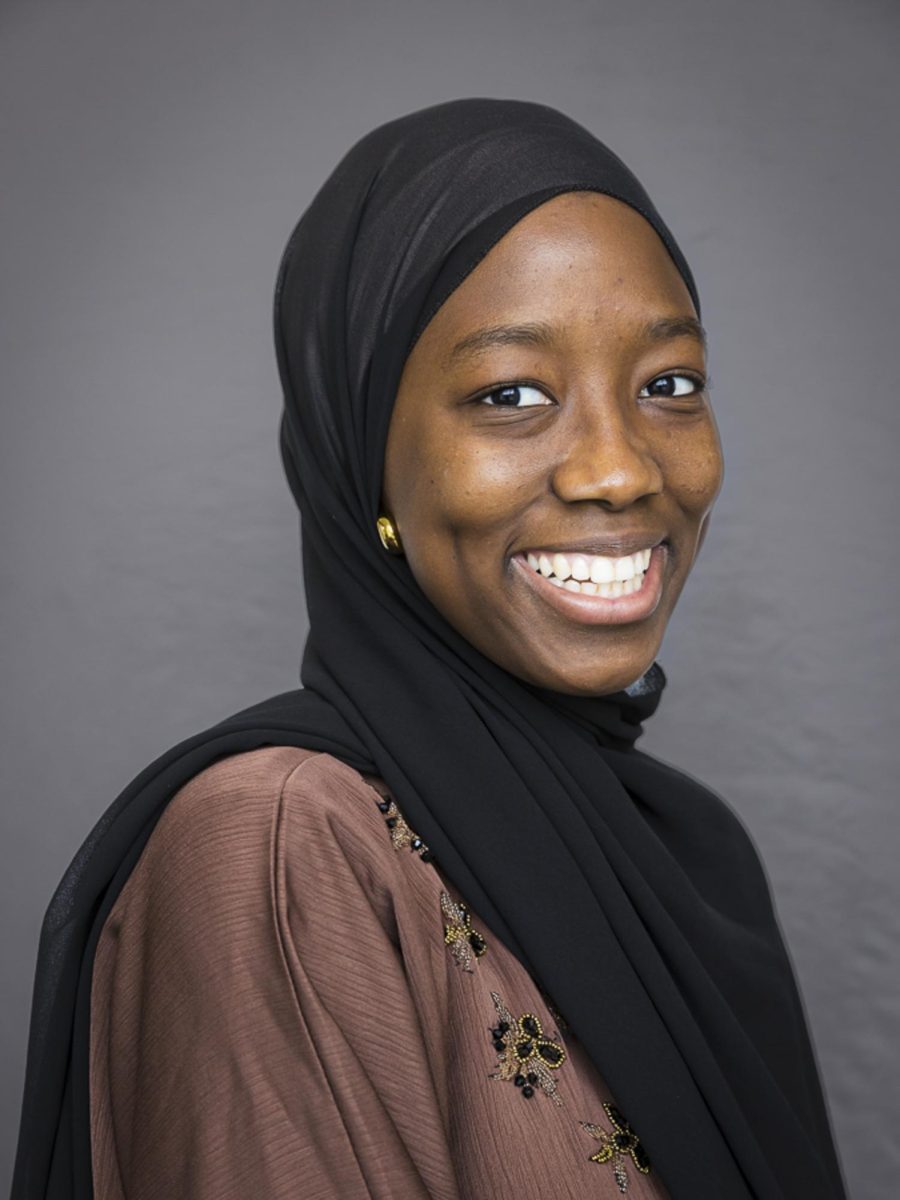A Mac Weekly survey of Macalester College Student Government (MCSG) members has revealed disparities between the governing body’s demographic makeup and that of Macalester at large, including a statistical underrepresentation of women and certain racial minority groups and an overrepresentation of international students.
The survey, which asked respondents to self-identify their gender, racial or ethnic identity, and country of origin, was distributed to all 29 members of MCSG, including each year’s five class representatives, members of the Executive Board and other non-voting staff members.
Of the 28 survey respondents, 11, or 39.29 percent, identified as female, compared to the 60.41 percent of Macalester’s total student population who are female-identifying, according to the college’s Office of Institutional Research (OIR).
The survey quantifies issues of gender diversity and representation within MCSG that have long concerned many on campus, including members of the student governing body itself, such as Merrit Stüven ’17.
“I do not think that MCSG currently reflects the makeup of the student body … there are definitely many underrepresented groups,” Stüven said. “The underrepresented group I engage with most is women: women’s representation is not nearly at the 60 percent level it is in the student body.”
“We recognize that our identities greatly influence the ways we represent the Macalester community and vote on issues that present themselves,” MCSG President Ian Calaway ’16 said in an email.
Michelle Kiang-Hinojosa ’15, who served on MCSG’s Student Services and Relations Committee (SSRC) in the 2014-2015 year, also took issue with gender imbalances in Macalester’s student government.
“MCSG was probably the only space [Kiang-Hinojosa was a part of at Macalester] where there were more men than women and non-binary people,” Kiang-Hinojosa said in an email. “The male:non-male ratio of representatives was probably the most worrying thing for me, since Macalester is mostly non-male.”
Whether transgender, agender, and/or non-binary students are similarly underrepresented on MCSG is not entirely clear. While one survey respondent self-identified as a transgender woman, the OIR does not publicly provide campus data on the number of students at Macalester who self-identify as agender and/or non-binary. Thus, comparisons to the broader campus community with regards to transgender representation cannot be easily made.
In contrast to this underrepresentation of women, seven of 28 MCSG survey respondents, or 25 percent, named a country outside of the US as their country of origin, compared to the 14.5 percent of the total student population comprised by international students.
None of the 28 MCSG survey respondents indicated China or South Korea as their country of origin, despite students from these countries comprising 27.94 percent and 10.16 percent of the total international student population, respectively.
The most commonly reported country of origin on MCSG outside of the U.S. is India. In contrast, 10.71 of all international students at Macalester are from India.
Current and former MCSG members, including Stüven and Kiang-Hinojosa, have noticed this disproportionate representation of international students within the ranks of Macalester’s student government.
Despite finding issue with the underrepresentation of many minoritized groups, especially women, Stüven believes that MCSG includes a “good contingent of international students, including international students of color.”
The degree of representation on MCSG varied greatly regarding racial identity.
With six of 28 total respondents identifying as domestic students of color, this demographic comprises 21.43 percent of MCSG members surveyed. Comparatively, the OIR considers 20 percent of all students (and 23 percent of domestic students) to be students of color.
Furthermore, three domestic respondents identified as Asian-American, two as mixed or biracial, and one as Latin@. No domestic students who responded to the Mac Weekly’s survey self-identify as Black or African-American, Native American, Native Hawaiian or Pacific Islander.
OIR data indicates that 34 percent of all domestic students of color identify as Asian-American, 28 percent as Hispanic or Latin@, 23 percent as Mixed Race and 10 percent as Black or African-American. Only three students at Macalester identify as Native American or Pacific Islander and do not also identify as mixed or biracial.
While the percent of domestic students of color in the survey respondents is similar to the percent in the student body, the composition of that group differs from survey to student body. There are roughly equal numbers of Asian American and Latin@/Hispanic students on campus, but only four Asian Americans to two Latin@ student in the survey.
Consideration of the intersection of racial and gender identities reveals further disproportionate representation. The survey results indicate that the gender imbalance in MCSG is most severe among domestic students of color. Although there are nearly two female domestic students of color for every one male domestic student of color at Macalester, the majority of domestic students of color on MCSG are male. Out of six MCSG members who identified themselves as domestic students of color, only one identified as female.
At Macalester, there are roughly 1.4 female white domestic students for every one male white domestic student. Among the MCSG survey respondents were four female white domestic students and eight male white domestic students.
Six students who responded to the survey identified themselves as female international students, and one identified himself as a male international student. In contrast to domestic students, this means that female international students are slightly overrepresented compared to those who are male. The overall international binary gender ratio of Macalester is 1.9 female to one male.
Many affiliated with MCSG have attempted to explain these representation imbalances.
Kiang-Hinojosa credits gender and racial misrepresentation she observed on MCSG to “a combination of Macalester’s culture, MCSG being historically dominated by males, and larger social forces like white supremacy and sexism.”
“MCSG is not an appealing form of leadership at Macalester for students who wish to change the status quo, which is often more domestic students of color and people who feel disenfranchised by Macalester’s administration and culture of internationalism,” Kiang-Hinojosa said.
Junior class representative Remy Eisendrath ’17 points to logistical reasons that lead to misrepresentation on MCSG.
“The ratio of students to class representatives of roughly 100 to 1 makes it very difficult [for MCSG] to reflect Macalester’s diverse makeup,” Eisendrath said.
Echoing Kiang-Hinojosa’s point that many students feel discouraged with regards to changing MCSG’s demographic makeup, Eisendrath cites a general lack of participation in student government at Macalester.
“As it stands now, MCSG is not the most competitive body,” Eisendrath said. “Over the past few years, junior and senior classes have rarely had more candidates run than the minimum.”
Both current and past members of MCSG, including Akila Copeland ’16, have many ideas for improving representation. Copeland, who served on MCSG in 2014-2015, calls for increased involvement of MCSG members in student organization events.
“So maybe if you [representatives] aren’t physically or economically … representing people that you’re supposed to be representing, you can… actually experience what they’re doing, the events they’re holding,” Copeland said.
Sophomore class representative Chris Pieper ’18 emphasized the role of MCSG-led public outreach in improving its own representation.
“A lot of the burden is on MCSG themselves,” Pieper said. “[It needs] to really push for … the message that it is an inclusive community and it really tries to listen to all of the students’ voices.”
“MCSG could always better represent the student body. We can always find better ways to communicate our ideas and plans and to incorporate non-representatives in our decision making process,” MCSG President Ian Calaway ’16 said in an email. “Currently, the MCSG Structural Review Committee is putting through legislation to help MCSG better represent the student body through its addition of issue specific positions like Community Engagement Officer and Diversity and Inclusion Officer.”
Overall, many affiliated with MCSG, including Copeland, have hope in the governing body’s ability to better represent the diverse makeup of the student body.
“I think that there are enough people that are having those conversations [about representation] already,” Copeland said. “[People are asking] ‘Why aren’t women in leadership positions?’ ‘Why aren’t more POC in leadership positions?’ I think that those conversations are being held, it’s more how do we act on those conversations.”
A bill allowing for the creation of a “Diversity Officer” position on MCSG was introduced this week, and both Stüven and Eisendrath believe it will help the governing body achieve a more proportionate representation.
However, both junior class representatives stress the importance of student efforts in making MCSG more representative. Both Stüven, the only female among eight total candidates in next week’s MCSG elections, and Eisendrath called for people belonging to underrepresented groups to run for office.
“We [on MCSG] can’t improve representation by ourselves,” Stüven said. “We can work to make the space more positive and welcoming, but students also need to take initiative and run for office.”
Last year, a cohort of students, including Kiang-Hinojosa, Copeland, Abaki Beck ’15 and Erica Lee ’15 tried to increase the representation of female students of color on MCSG.
“[We] were trying to diversify MCSG…[and] create a wide-spread, critical mass of students of color, but also women,” Copeland said. “It ended up being me, Alex Harley [’15], Abaki, Biftu [Takele ’16] and a few other people”.
However, most of the students involved in that effort have graduated, and the number of domestic women of color on MCSG has since decreased.
“That was the first step… that someone in MCSG took to actually consciously change what it looked like,” Copeland said. “And it worked for that semester, but it didn’t stay.”
Ultimately, Copeland believes that lasting change will take long-term, conscious planning. “We [as students] try to think about how do we get things done for next year, next fall, next spring, but we’re only a small part of the institution, Macalester as a whole and MCSG.”
She emphasized the importance of students looking beyond their own time at Macalester. “If things can’t be done immediately, how do we then set them up so the people come after us can make more progress on what we were able to do? We need to look at the bigger picture and figure out how we can influence things on a greater scale.”














Lillian Baker • Sep 11, 2019 at 4:15 pm
What i do not realize is actually how you are not really much more well-liked than you may be now. You are very intelligent. You realize therefore considerably relating to this subject, produced me personally consider it from numerous varied angles. Its like women and men aren’t fascinated unless it’s one thing to accomplish with Lady gaga! Your own stuffs excellent. Always maintain it up!
Nicola Walsh • Sep 10, 2019 at 10:28 am
Itís awesome in support of me to have a site, which is beneficial in favor of my experience. thanks admin
Richard McGrath • Sep 7, 2019 at 5:50 am
What i do not realize is if truth be told how you’re no longer really a lot more neatly-liked than you might be now. You’re so intelligent. You already know thus significantly on the subject of this subject, made me individually consider it from numerous varied angles. Its like women and men are not interested until it’s something to accomplish with Lady gaga! Your personal stuffs outstanding. At all times care for it up!